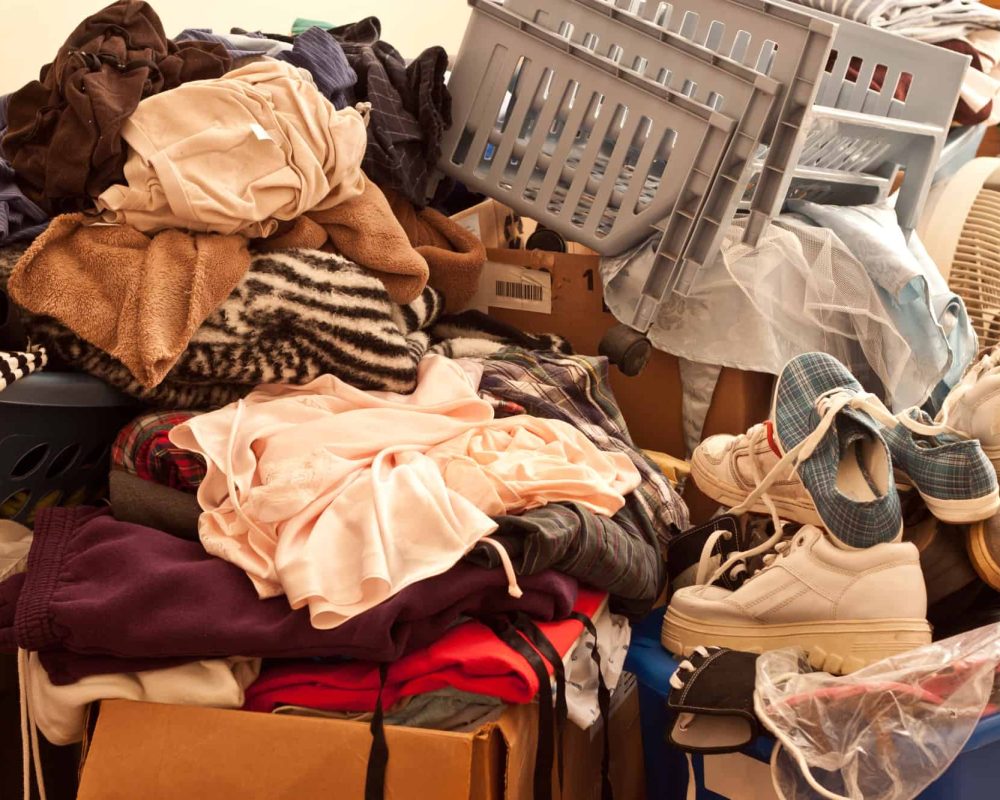Each person has a different level of tolerance for disorganization. But there’s a difference between being messy and hoarding. When we hear the word “hoarding,” we probably think of the TV show “Hoarders.” But what is hoarding, why is it dangerous, and who can you call for the cleanup?
What is Hoarding?
According to the Anxiety and Depression Association of America (ADAA), hoarding is “the persistent difficulty discarding or parting with possessions, regardless of their actual value.” People that deal with hoarding disorder will save random items and store them haphazardly. In most cases, they keep things they feel they could need in the future, that they find valuable, or have sentimental value, such as:
- Newspapers
- Photographs
- Boxes
- Clothes
- Food
- Furniture
- Appliances
- Electronics
Different Levels of Hoarding
The National Study Group on Compulsive Disorganization created a scale to identify how severe a person’s hoarding disorder had gotten. There are five levels on the hoarding disorder scale and are categorized depending on how much it has affected that individual’s living space.
Why is Hoarding Dangerous?
If you’ve realized that someone you know could be suffering from a hoarding disorder, they must seek help right away. Hoarding can lead to various hazards, including:
- Health hazards
- Physical damage
- Fire hazards
Health Hazards
When items accumulate to the extent of affecting a person’s living space, it will lead to poor sanitary conditions. Eventually, the lack of space will lead to dirt accumulating in large quantities, creating the perfect conditions for germs, bacteria, and other harmful microorganisms to grow and thrive.
The obsession with holding on to so much stuff will also lead to poor air quality, leading to mold problems. These types of conditions will also attract many unwanted pests that can lead to serious health problems.
Physical Damage
When so much stuff is piled up in one place, any order or organization is impossible. In addition, hoarding can lead to physical injuries to those who live or visit someone with a hoarding disorder. You don’t only have to worry about things collapsing on top of you, but you also increase the risk of serious falls.
On top of mold issues and unwanted pests, water damage is very common in a hoarder’s home. All these factors will lead to structural damage, which can end up being catastrophic.
Fire Hazards
When you combine possible damage to the structure and electrical components with a lot of flammable material, you have a severe fire hazard on your hands. In addition, fighting the fire and attempting to find the occupant will be extremely difficult in these conditions.
Cleanup Services in Austin, Texas
The dangers of hoarding pose a hazard for the person hoarding and the team that can help clean up. Where would you be able to get hoarding cleanup services in the Austin, TX area? The expert team at Austin Bio Clean provides professional hoarding removal and clutter cleanup services to Austin and Central Texas.
We understand the importance of providing prompt, discrete, and confidential services and are ready 24/7/365. Contact us today!




